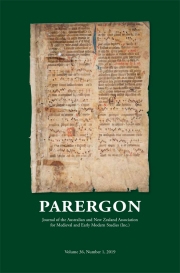Paper and panel proposals are invited for the conference ‘How to do things with early modern words: Interdisciplinary opportunities, dialogues, perspectives and methodologies’. The conference will take place at Loughborough University, UK, 23-25 April 2020.
2020 will see the publication of the first two volumes of The Cambridge Edition of the Works of Aphra Behn. Editing Aphra Behn’s remarkable oeuvre has involved the collaboration of an international and interdisciplinary team of scholars, drawing on expertise from across the humanities. ‘How to do things with early modern words’, a three-day conference to mark the 350th anniversary of the start of Behn’s public career, aims to celebrate and develop interdisciplinary approaches to early modern studies. Bringing together researchers working in all fields represented within the edition, including literature, history, theatre history, language, and digital humanities, between 1500 and 1750, the conference will explore current, cutting-edge themes, perspectives and methods in scholarship on the early modern world.
Proposals for either individual 20-minute papers or complete panels (comprising 3 or 4 papers) should be submitted to EMWords@gmail.com by 23 September 2019.
Papers which explore interdisciplinary approaches to early modern scholarship, or which address the challenges represented by digital technology, conceptual advances, or new archival discoveries (either within or across disciplines) are especially welcome. We encourage discussions of projects at initial or early stages of development for 10-minute Pecha Kucha presentations, and other formats of presentation and discussion are also invited.

